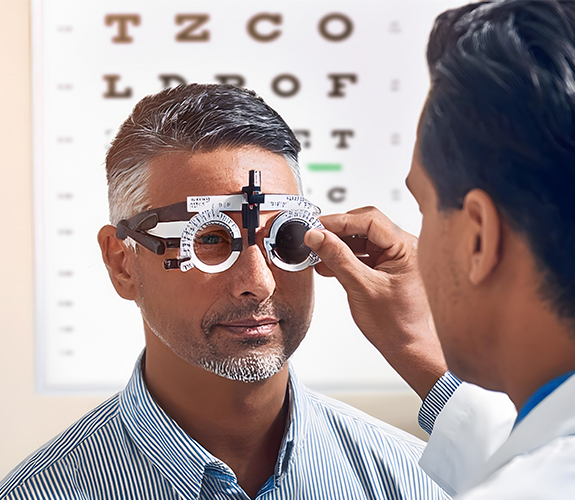Breast cancer is the cancer that forms in the cells of the milk ducts in the breast.Along with skin cancer, breast cancer is considered to be one of the most common cancers, that can occur in both men and women, though in men the instance is comparatively low.The instances of breast cancer have increased in the last few years, but with upgraded technology and treatment options, the death rate has continuously decreased. Don’t let the fearovercome you, but seek medical guidance immediately if you are diagnosed or you feel that you are showing similar symptoms.
Consult experts at the Best Oncology Hospital in Delhi, to know the correct diagnosis of your symptoms, and accordingly find a proper treatment plan.
Types
1.Angiosarcoma: A rare cancer that usually develops in the inner lining of blood vessels and lymph vessels
2.Ductal carcinoma in situ (DCIS): Ductal carcinoma in situ (DCIS) means the cells that inline the milk ducts have turned to be cancerous but hasn’t spread to other areas
3.Inflammatory breast cancer: A rare and rapidly developing cancer that turns the breast red, swollen and tender.
4.Invasive lobular carcinoma: Invasive lobular carcinomais another kind of breast cancer that commences in lobules.
5.Male breast cancer: Male breast cancer is a rare kind of cancer that evolves in the breast tissue of men.
6.Paget's disease of the breast: A rare type of cancer which involves the skin of the breast
7.Recurrent breast cancer: A regionally restricted breast cancer that has returned and affected the similar lymph nodes
What are the stages of breast cancer?
Breast cancer has majorly 2 different staging. 1st stage is known as “anatomic staging” and the other is known as “prognostic staging”. The anatomic staging is stated by the areas of the body where the breast cancer has been found to spread and this helps to identify the appropriate treatment. The prognostic staging assists medical professionals estimate that how the patient is to be healed after all kinds of treatment is executed.
The anatomic staging system is mentioned below:
Stage 0 – This is, when the cancer localizes in the milk ducts only
Stage I –The cancerous area is lesser than 2 cm across and hasn't spread anywhere which means no lymph nodes have been affected
Stage II
- The cancerous area is smaller than 2 cm but has spread to the lymph nodes of the underarm
- The cancerous area ranges between 2 and 5 cm, may or may not spread to the lymph nodes.
- The cancerous area is bigger than 5 cm and has not affected the lymph nodes in under arm
Stage IIIThe cancerous area is any size thataffectslymph nodes as well as surrounding tissues.
Stage IVThe cancerous tumour has made its way to areas of the bones, lungs, liver or brain.
Symptoms
Symptoms of breast cancer may include:
1.A lump in the breast or thickening of an area in your breast tissue
2.Changes which are noticeable on the skin of the breast
3.Inverted nipple
4.Peeling, scaling, crusting of the skin on your breast
5.Redness or pitting of the skin
Risk factors
Factors that are associated include:
1.Being female.Women are more likely to get breast cancer when compared with men
2.Increasing age.The risk increases with increasing age
3.A family history of breast conditions. If your family history has the instance of breast cancer then you have an increased risk of breast cancer.
4.A personal history of breast cancer. If you have already had cancer in one breast, then you havea potential risk of developing cancer in the other breast too.
5.Inherited genes that increase cancer risk. Certain gene mutations are also a leading factor
6.Radiation exposure. If you have been under any radiation treatments for your chest
7.Obesity. Being obese increases your risk
8.Beginning your period at a younger age. Beginning your period before age 12
9.Beginning menopause at an older age.Commencement of menopause at an older age than what is the normal range
10.Drinking alcohol. Drinking alcohol has also been proven to increase the risk of breast cancer
Prevention
Making changes in your daily life may help to reduce the risk of breast cancer.
1.Ask your doctor about breast cancer screening. Discuss with Best Oncologist in Delhi when to begin the breast cancer screening exams and tests
2.Try to be familiar with your breasts through breast self-exam for breast awareness.
3.Drink alcohol in moderation, if at all. Limit the amount of alcohol youintake and the occasions you usually drink in
4.Exercise most days of the week.Try to undergo 30 minutes of exercise
5.Limit postmenopausal hormone therapy
6.Maintain a healthy weight. Reduce the number of calories you eat each day and make sure to balance your calories
7.Choose a healthy diet.Make sure to follow a very healthy diet to get proper nutrients and minerals
Prevention is better than cure, so always make sure to be aware of the prevention methods. Incase you are diagnosed with breast cancer, make sure to constantly be under medical guidance and remain active about your treatment plan. It is nothing to fear about if managed properly, as cancer can be cured.



